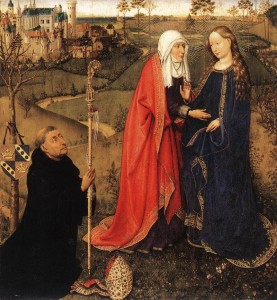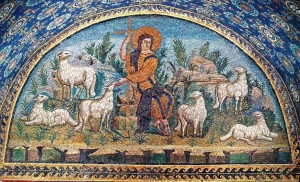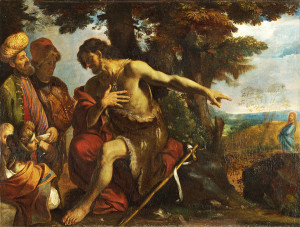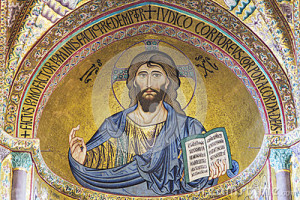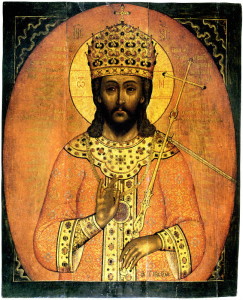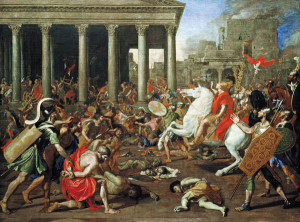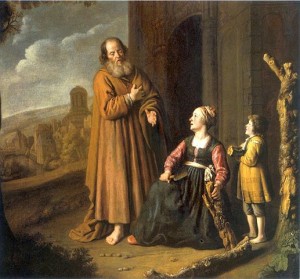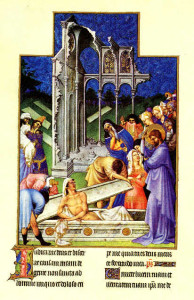Thoughts on Today’s Lessons for Jan. 3, 2016
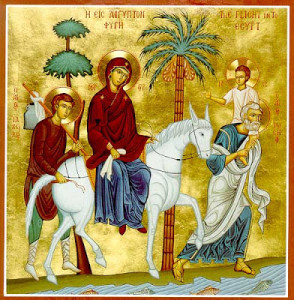
Greek Orthodox icon depicts the Holy Family’s flight into Egypt.
The Gospel story of Joseph, Mary and Jesus seeking refuge in a strange land offers us rich food for thought in our own troubled times, when refugees look for safe places around the world. Sunday’s readings offer comfort for those who put their faith in God as they face fear, poverty and oppression. Hear the prophet Jeremiah, speaking to Israel in exile. A people forced to migrate to the enemy’s capital, leaving behind the ruins of Jerusalem and the Temple, trust that God will lead them back home, turning their sorrow into gladness, their mourning into joy.
In poetic themes and metaphors that closely echo Jeremiah’s verses, the Psalmist writes a hymn of trust and praise in a loving God who will protect the people and lead them back home. God will provide clear water in desolate places, protect them in the heights and serve as their shield against burning sun and raging enemy. And, home at last, they will know the joy of worshiping in God’s temple, lavished with God’s grace and glory.
Second Reading: Ephesians 1:3-6,15-19a
Paul offers the people of Ephesus a promise similar to the one we heard in last week’s reading from Galatians: They – and all of us – are adopted as God’s children through Jesus, and in this way we are freely given God’s grace. Like migrants received with a loving embrace in their new land, we receive a glorious inheritance of great spiritual riches that gives us hope.
Gospel: Matthew 2:13-15,19-23
Surely we all remember the horrifying picture of the baby Syrian boy whose drowned body washed up on the Turkish coast. Now think about Joseph and Mary, terrified, running away to a foreign land to escape the threat of their own baby’s death at the hands of an angry King Herod. What parents would not go to such an extreme to protect their precious child? And what child, living through such an experience, would not forever remember to care for the widow, the orphan and the stranger?

